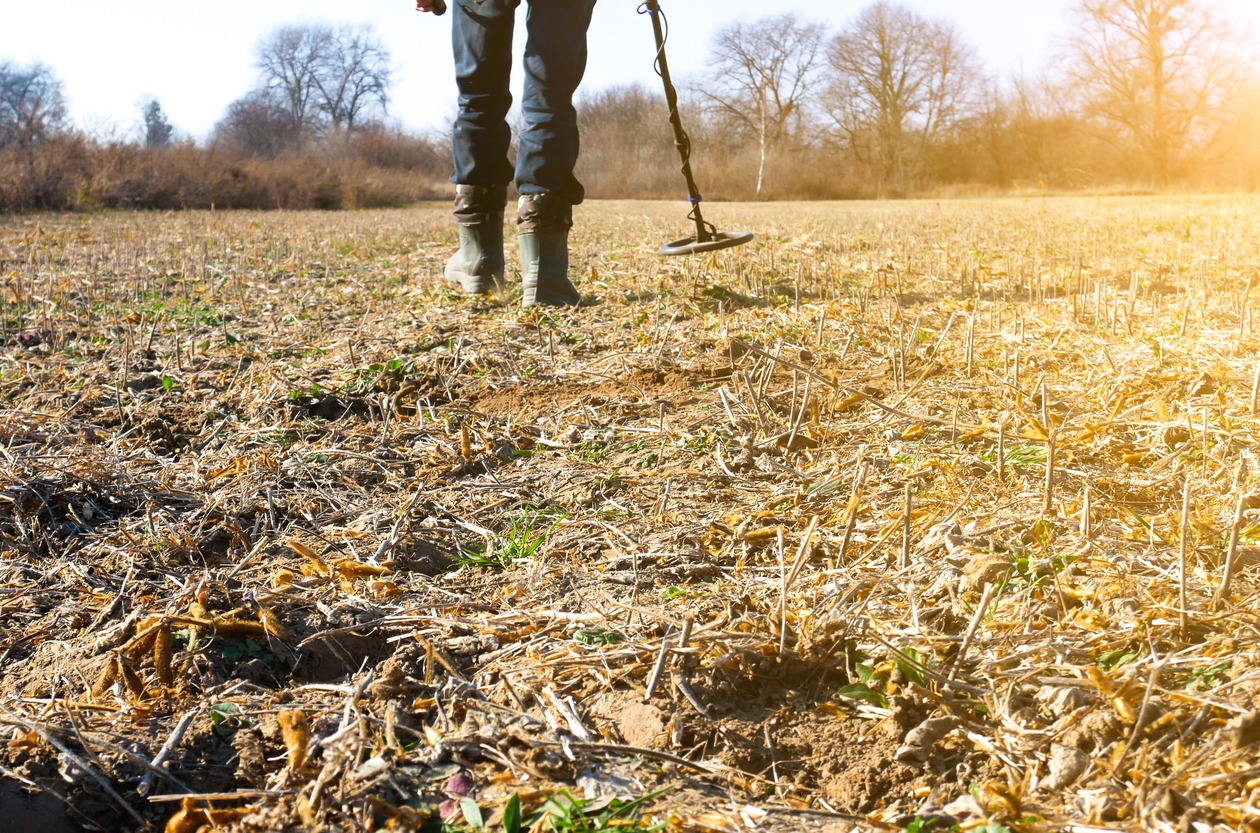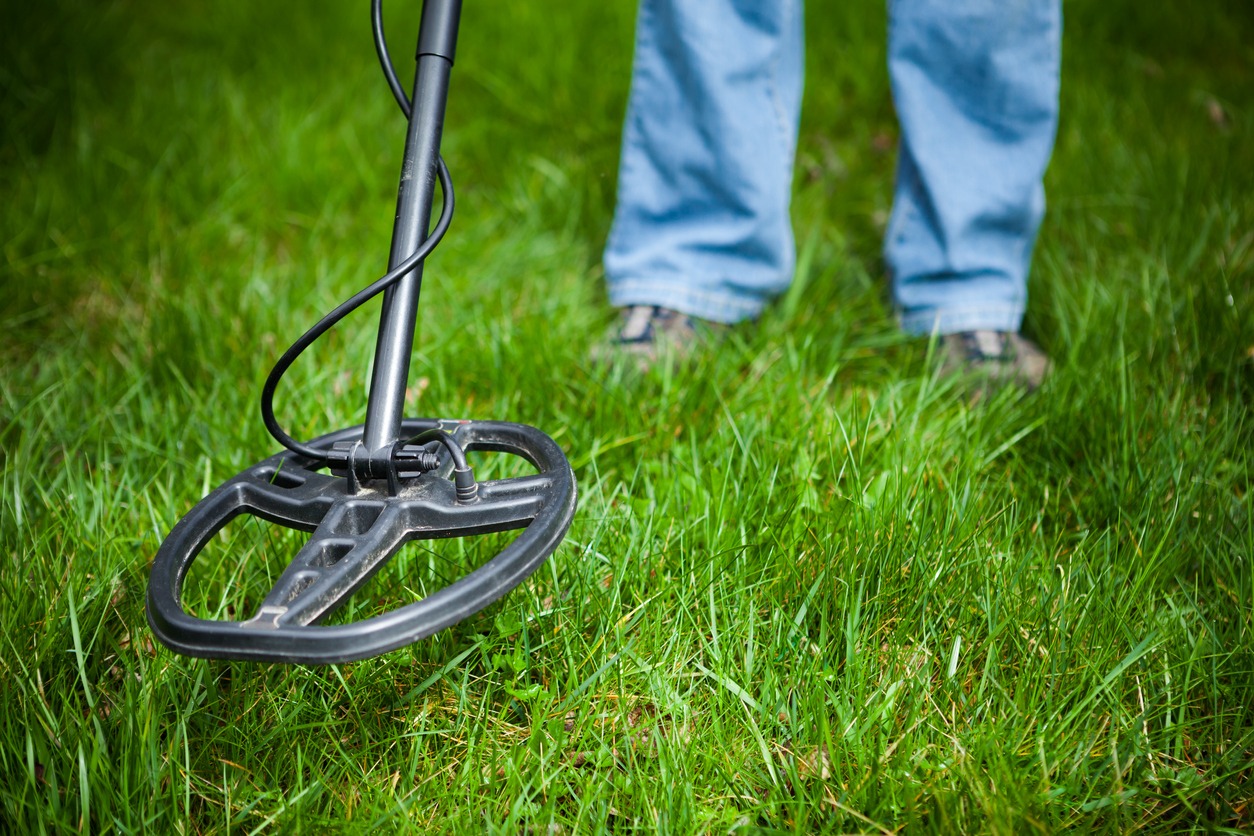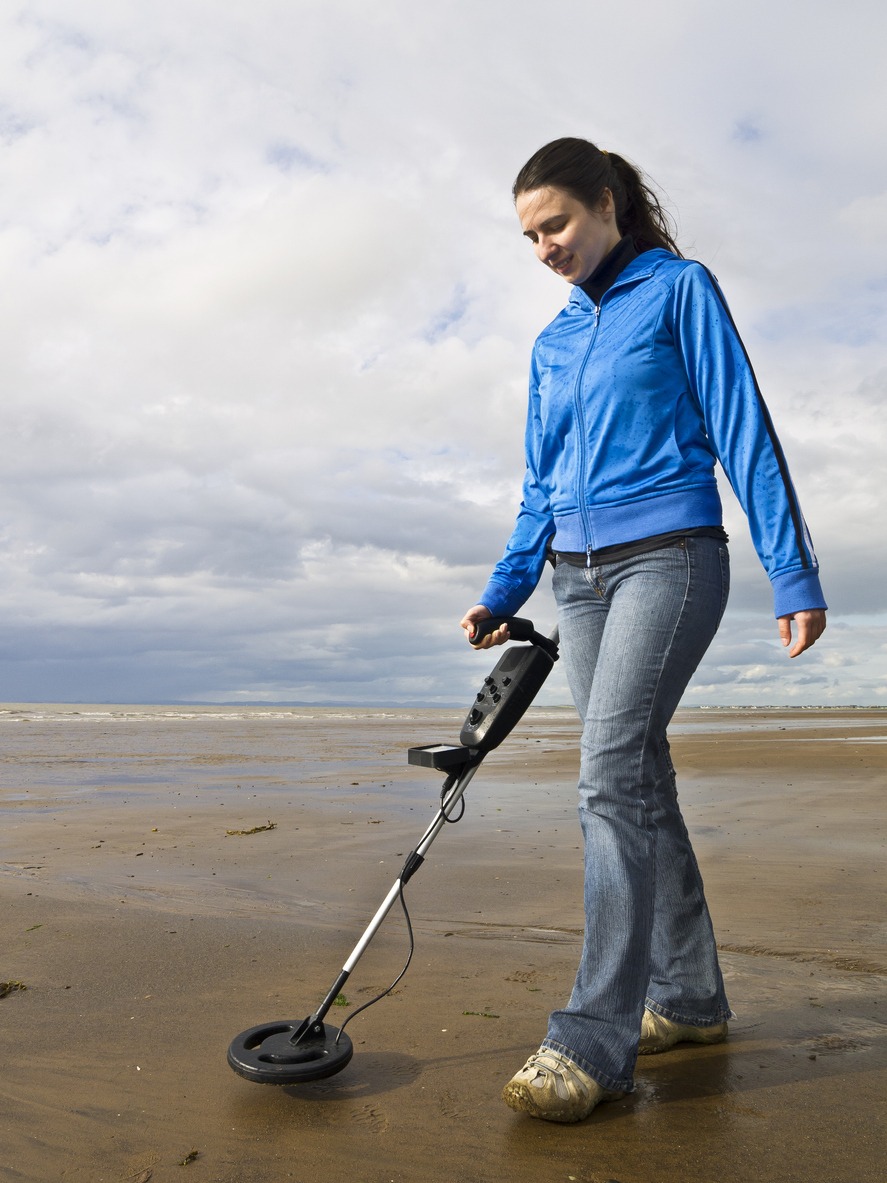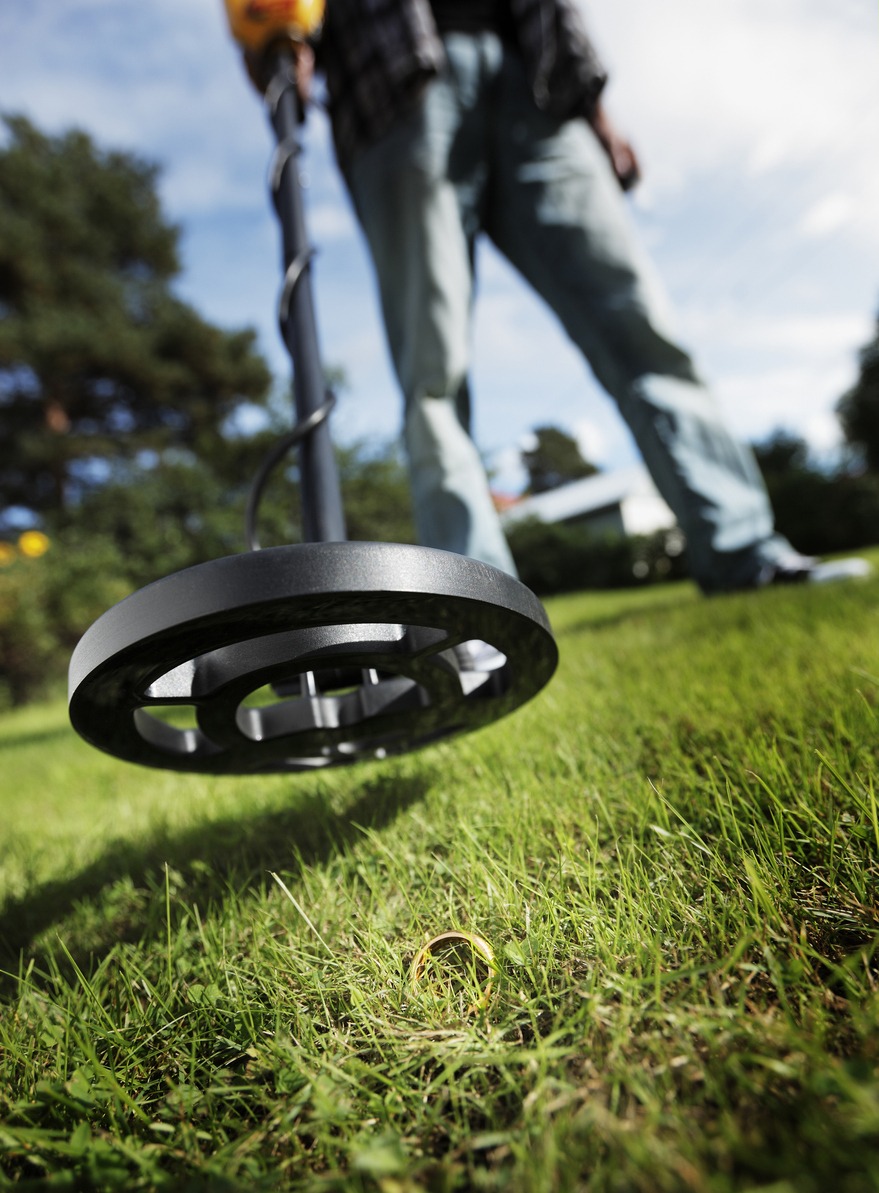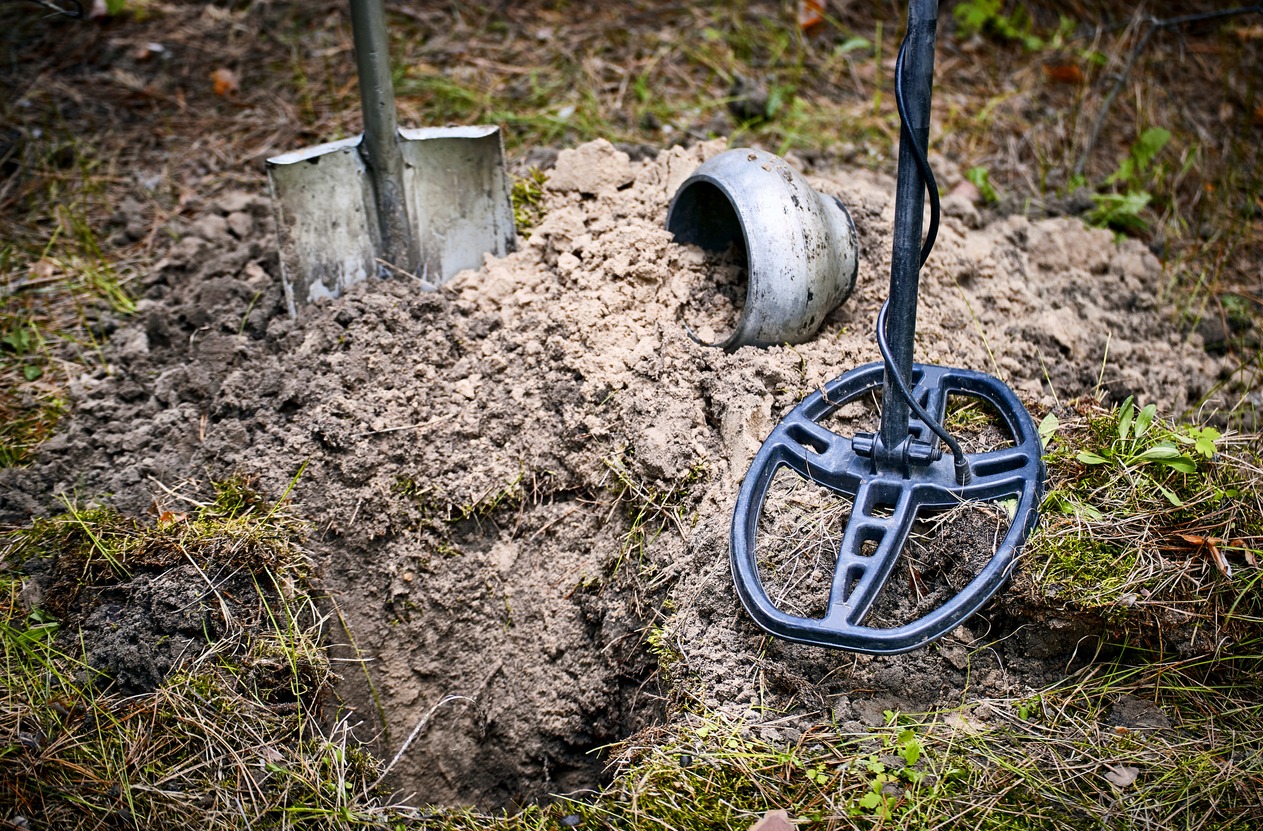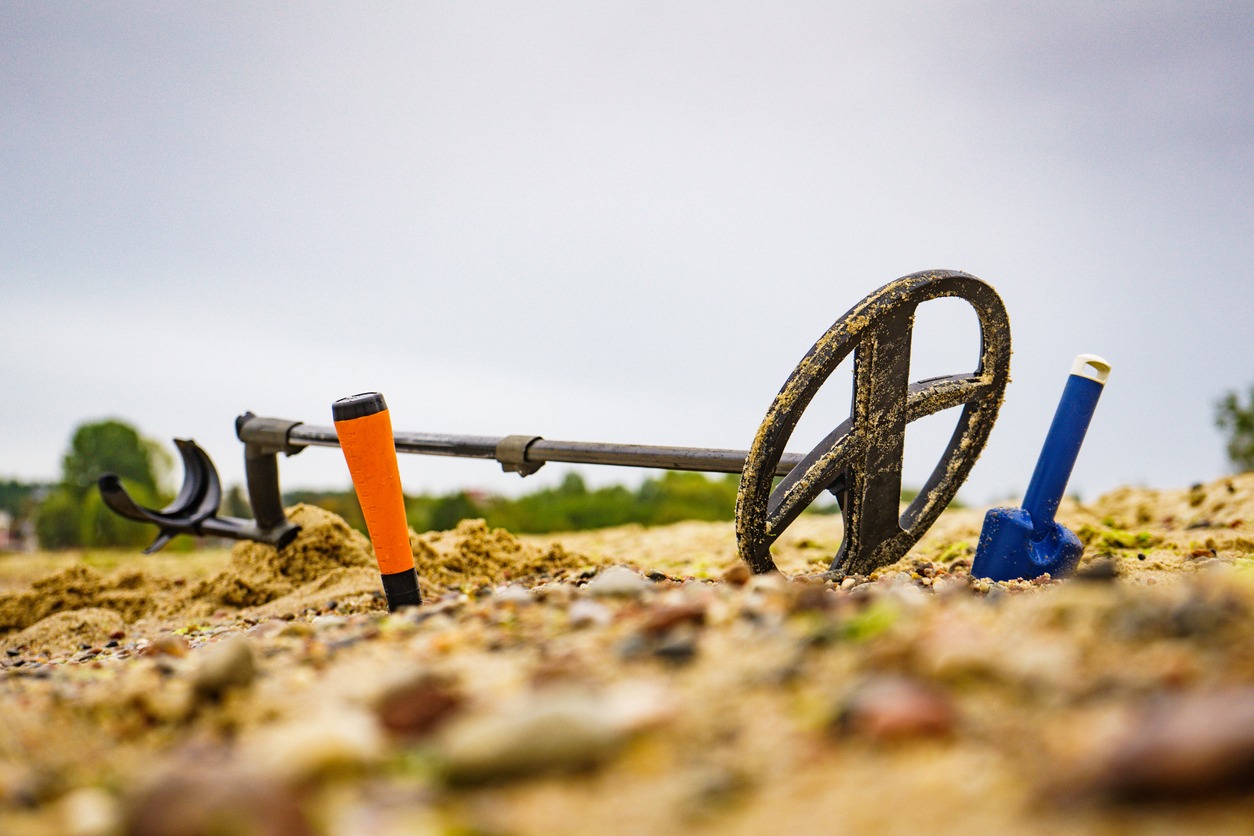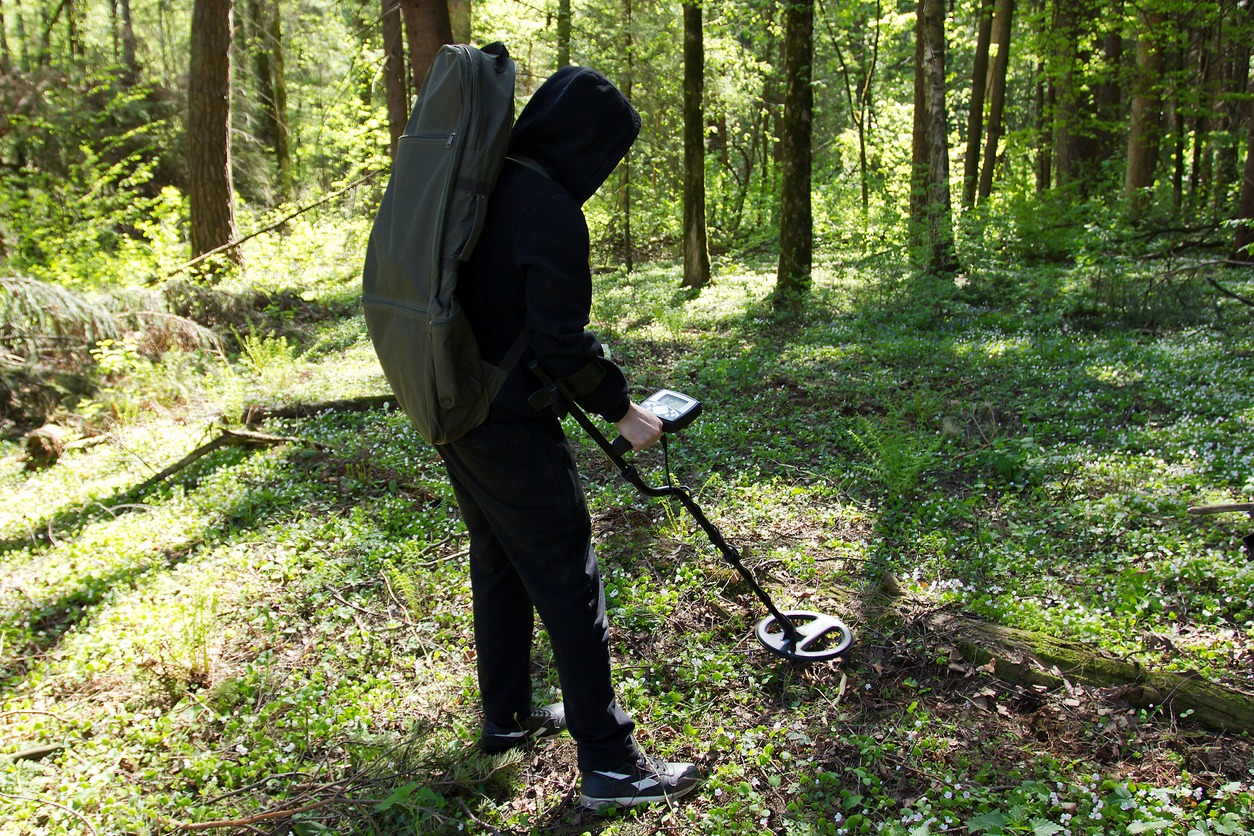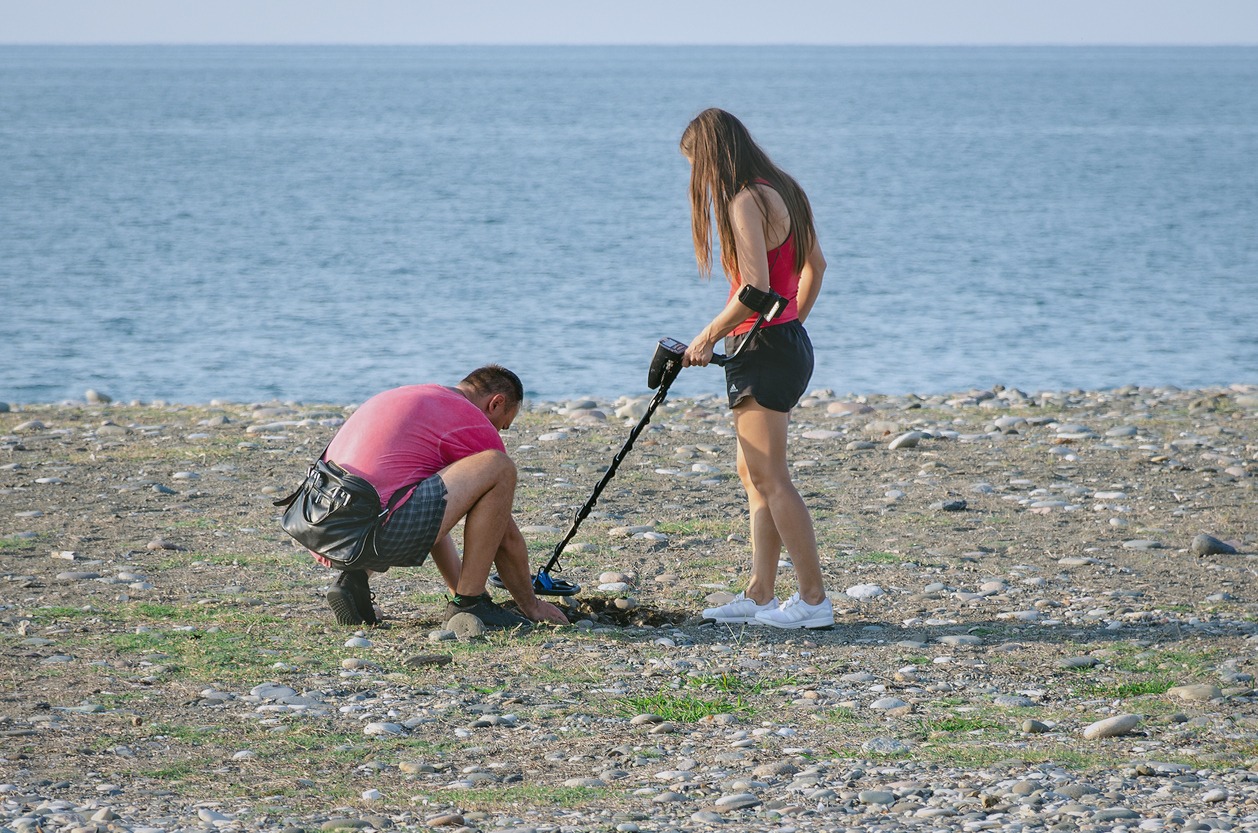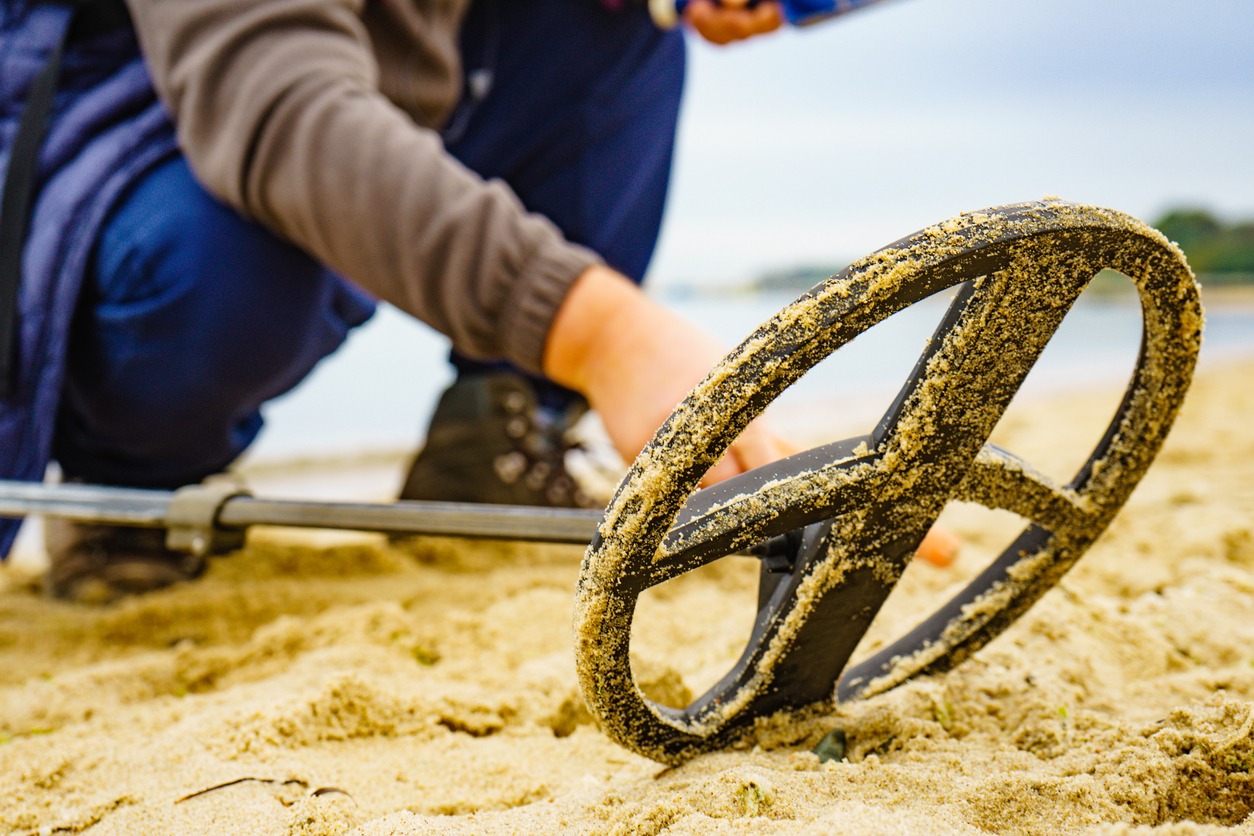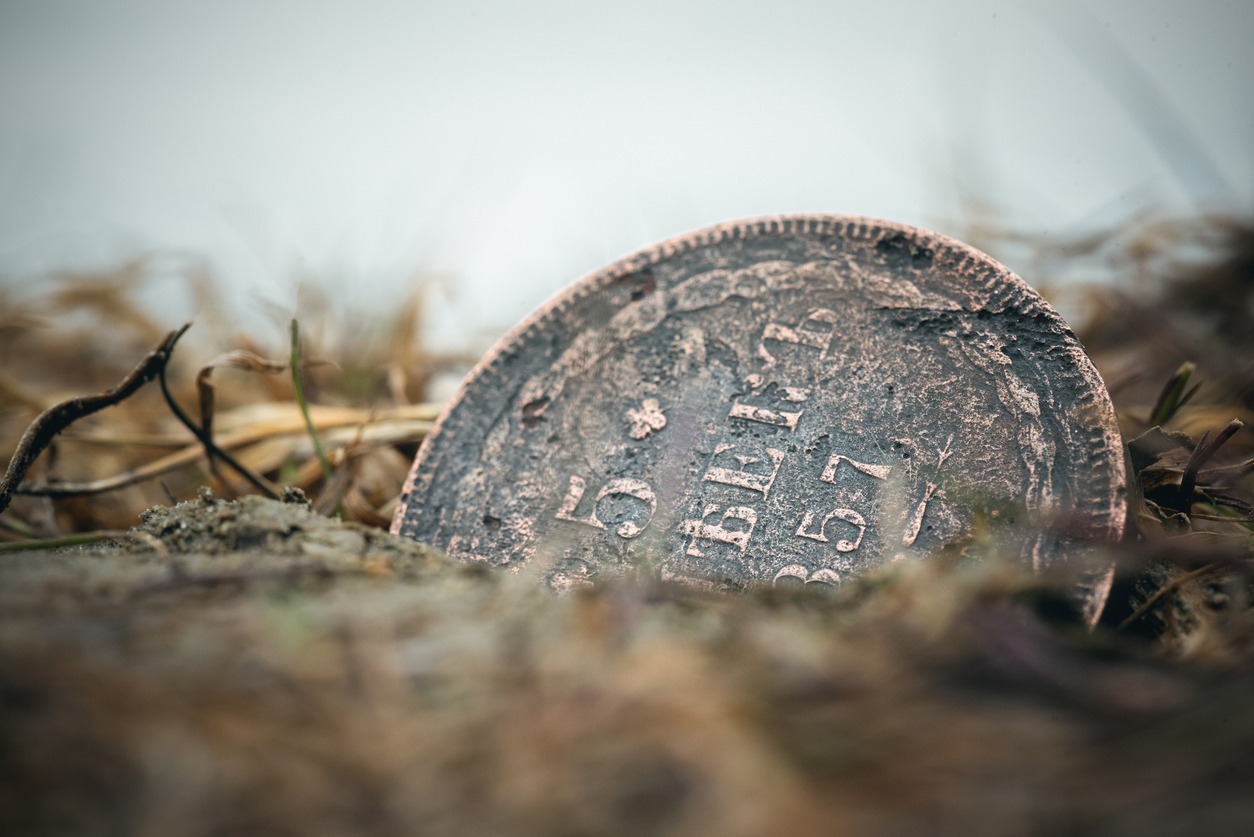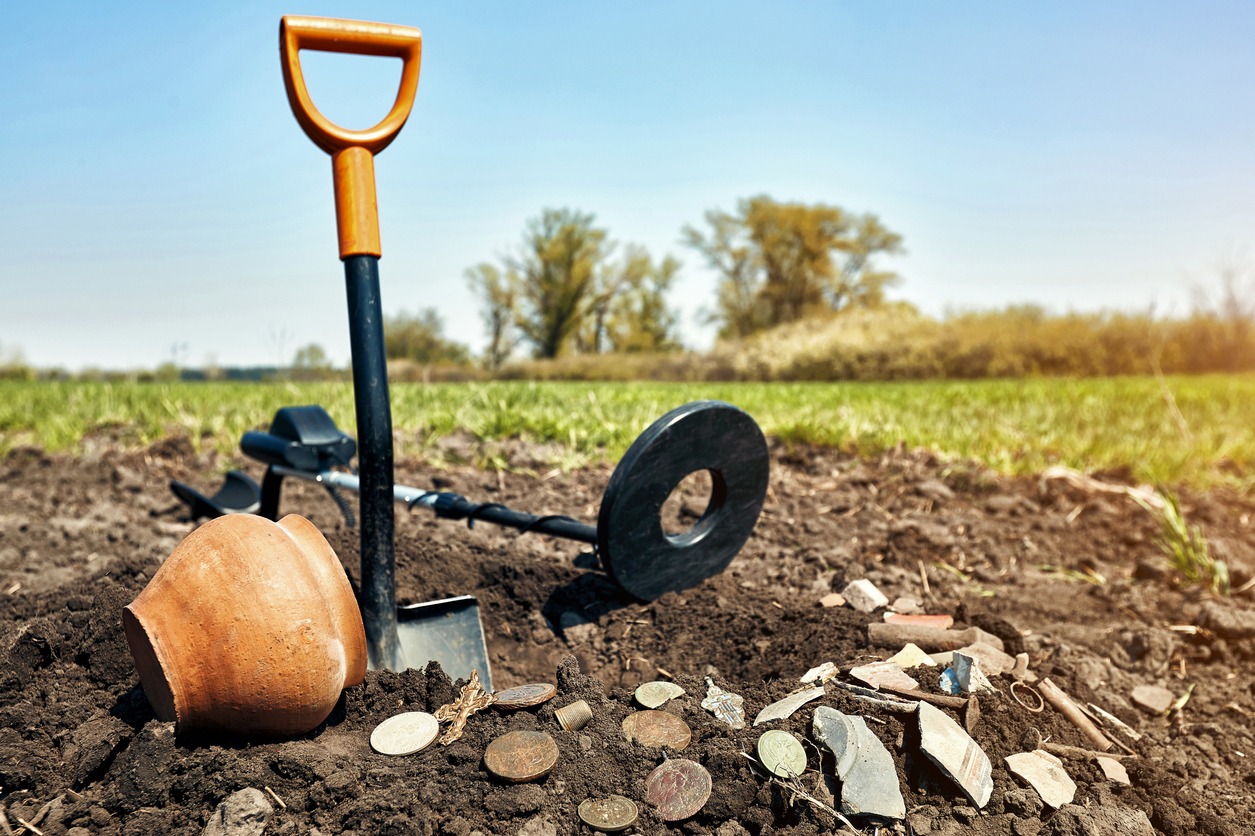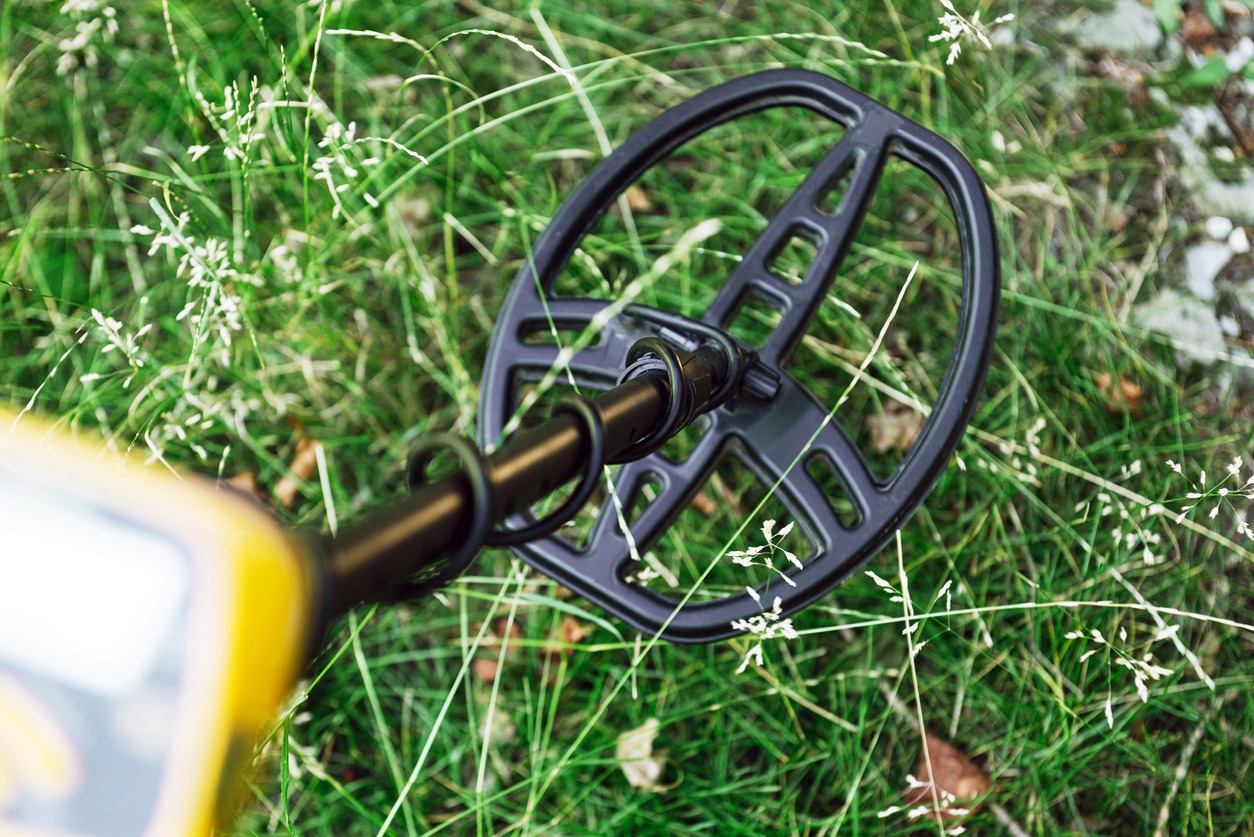It may be a lot of fun and occasionally a good adventure to go metal detecting. You may discover anything using a metal detector, including jewelry, coins, and antiquities. Although the practice of metal detecting might need some expertise and patience, it is a terrific way to stay active and perhaps uncover a unique buried treasure. Learn more about locating things and using the metal detector before going on a metal-detecting adventure.
Metal Detecting Details
Read More About This Hobby| Category: Collection, Outdoors, Technology, Traveling | Time: 1-2 hrs | Skill: Little |
| Initial Cost: $$$ (101-500) | Space: some | People: alone, small |
| Long-Term Cost: Low | Makes Money: Can, but not always | Location: outdoor |
What is a metal detector?
A device that can identify different metal kinds and grades is a metal detector. It usually beeps repeatedly to let the user know when the metal has been located. Airports, the military, the police, construction workers, and regular folks who like hunting for metal as a pastime may all use metal detectors. In the 1950s and 1960s, metal detecting as a pastime witnessed a significant increase in popularity, and portable, smaller equipment was created.
A brief history of metal detecting
After electricity was developed in the middle of the 1800s, several researchers, academics, and gold miners started experimenting with the notion of creating a device that could find metal that was buried beneath. The inventor of the first successful metal detector may have become extremely wealthy because of how helpful a machine like this would be to the numerous prospectors still searching for gold after the “Gold Rush.”
However, the earliest metal detector ever mentioned in history had nothing to do with discovering gold. Instead, it was used in President James Garfield’s fight to survive after being shot in Washington, D.C. Charles J. Guiteau performed the deed on July 2, 1881, at the Baltimore and Potomac Railroad Station. Fortunately, the President survived the wound despite being shot in the back. Unfortunately, physicians could not find the bullet. Thus, Garfield’s suffering persisted.
How metal detectors work
The search coil of a metal detector sends an electromagnetic field into the ground to find metal. Any metallic items (targets) in the electromagnetic field will energize and emit their electromagnetic field. The detector’s search coil picks up the retransmitted field and notifies the user by generating a target response. Minelab metal detectors may be programmed to ignore undesirable targets and can distinguish between various target kinds.
You may check out this website to further understand metal detecting’s key concepts.
Things to consider in metal detecting
You Can Find Priceless Items
The possibility of discovering treasures is perhaps the most thrilling aspect of metal detecting as a pastime. This is a thrillingly unexpected activity. You could come upon a tiny valuable one day. The next time you walk outside, you could discover something of great worth. Your metal detector can assist you in finding a wide variety of items. Coins are frequently discovered, but jewelry can also be located.
You Exercise Well
Metal detecting most definitely does not fall into primarily passive activities. It is crucial to understand that when you are metal detecting, you are receiving a lot of exercise in addition to your main goal of discovering valuable artifacts. You must cover a lot of lands to be successful at metal detecting, so your expedition will include steady walking.
Your opportunity to travel
While there are probably many locations in your neighborhood where you would like to attempt metal detecting, this is a pastime that may also allow you to travel. Many individuals organize vacations around their passion for metal detecting, as you can see from reading various metal detecting websites. You might opt to bring your gadget on a trip after researching multiple areas in your state and beyond. In addition to being an adventure, doing so can allow you to connect with like-minded metal detecting hobbyists. To begin this new activity, go online for a metal detector.
Why should you pursue this hobby?
There are a lot of people that are always looking for new treasures. Since many valuables have been hidden worldwide during times of war and other situations, it would become easier for you to pursue metal detecting as a hobby and a method to strike gold if you had a basic understanding of where to look.
Said, metal detecting entails searching the Earth and any things buried there for any form of metal. This metal would often be valuable. This will inevitably assist you in becoming wealthy. However, metal detection is more complicated than it first appears. Most of the time, you need a lot of equipment and the fundamental knowledge of what gear to consider. For this, you would need to research the past to determine where the buried treasures are most likely to reside.
Why is metal detecting such an engaging activity?
Most individuals believe that metal detecting would make them wealthy, which is why it makes such an engaging activity. This is among the primary factors that make having this activity enjoyable.
So, metal detecting is one of your most excellent possibilities if you hope to engage in a pastime that will blend history with financial gain. You must remember, though, that you can only follow your fun of metal detecting if you have a great deal of patience.
Laws and ethics concerning metal detecting in the USA
Don’t leave a trace behind is one of the detectorist’s codes of ethics cardinal principles. Filling up holes you dig, particularly those on the seashore, is required. In grassy locations, you should repair the hole while preserving the vegetation. Alan suggests making a semicircular incision through the sod, cutting through the roots below it horizontally, and then folding the semicircle back like a flap. Pull the sod flap back into place and lightly press it down once you’ve excavated (and filled) the hole beneath.
Keep in mind and abide by all applicable laws. National parks, monuments, wilderness regions, and other alluring locations are entirely off limits due to rules prohibiting the use of metal detectors on government land.
Sites to conduct metal detecting
Occasionally, a change of scenery revives and offers you a brand-new, thrilling atmosphere in which to look for riches. Finding new areas to detect alters not only your point of view but also your mood and the caliber of your discoveries. Try doing some research to identify some ancient homesteads or abandoned churches to search if you often go hunting in parks or schoolyards. If you don’t hunt but live near bodies of water, you may also try looking along the shoreline or, if your detector is designed for it, even underwater. Maintaining novelty and interest will keep you motivated.
Finding extraordinary objects for this activity requires using a decent metal detector with a deep search coil and doing a local historical study.
Using websites that offer ancient maps, you may investigate historical locations in your town. Some of these websites provide free downloads of outdated maps that you may print or save on your phone. I frequently use these maps to discover new tourist attractions.
Metal detecting as a social hobby
You may socialize with someone who enjoys detecting by detecting with a companion. There is nothing like spending time with someone who shares your enthusiasm for your activity, even if your friends and family are also interested in it.
You may discover some of the most excellent sites in older portions of the city, in rural regions, or in places with rugged terrain. Hunting alone in those kinds of areas is never a brilliant idea. You never know what can occur while you’re detecting, so it makes sense to have someone with you in case of an emergency.
It’s a good idea to have some friendly rivalry, especially if you and your detecting partner have equal amounts of detecting expertise. Like any teammates, you can engage in friendly competition by placing bets and a little trash talking as you wait to see who will win the day. Just bear in mind that maintaining goodwill is crucial if you’re competing. A new companion shouldn’t be abandoned after just one outing.
Benefits of metal detecting
You visit several terrains while metal detecting outside in the open air. It may be a calming activity to engage in while taking in the peacefulness of nature. Finding old coins, jewelry, and relics (interesting artifacts from previous generations) stimulates the intellect as you discover their pasts, values, and previous owners. You will also learn about your city when you go on a treasure hunt. It’s a brilliant idea to conduct some research in the town room of your nearby library before leaving. This will assist in identifying the kinds of treasure most likely to be discovered in your area.
If you live close to gold-mining territory, you may buy a detector for finding gold veins and nuggets. Alternatively, this may be an ideal location for relic hunting if you are in a region where a conflict formerly occurred.
What Kinds of Valuables Can You Expect to Find?
Most new users enjoy using a metal detector to look for coins. It’s easy and virtually always successful. Your metal detector is working even if you bring back a few dollars in loose change each time you go out. Other fantastic findings with a metal detector include jewelry and watches. You may use these goods to try to locate their long-lost owners, sell them, or donate them. In addition to more common jewelry and knives, famous Civil War artifacts to look for in the United States include colonial buckles, buttons, swords, and musket balls. With a metal detector, you may quickly find old collectible coins in high demand.
Cost
Several metal detectors are available, ranging from 200 to 500 dollars. The ultimate cost varies depending on the feature you have. These detectors are affordable, but that does not mean that they perform subpar; on the contrary, they are great tools to get started in the metal detecting field. They are designed for novices and individuals who do not conduct thorough explorations.
Conclusion
Every person has a different motivation for starting a pastime. It’s the same with metal detecting. Whatever your motivations—money, fitness, outdoor exploration, or even meeting new people—metal detecting is unquestionably a worthwhile pastime.
